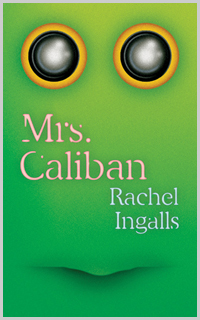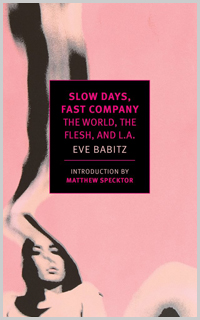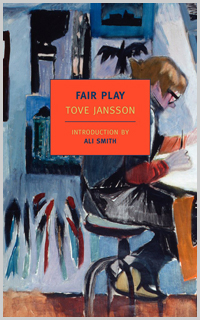Below, Malvernian Julie Poole (host of our Line/Break Poetry Book Club) has some splendid summer reading recommendations for y’all…
A customer came into the store and asked for a fun book that she could take with her on vacation, something “light” to read on the plane. At first, I panicked a bit, scanned the store thinking of all the heavy stuff we carry: sad poems; sadder sad poems; books with words like “death,” “dark,” “hell,” in the title, but then a few bright rays began pulsing from the shelves. Pick me, pick me, I’m fun, they said. So I thought, why not put together a grab-bag selection of fun? (Or, at least, books I consider fun.)
 Ask Baba Yaga: Otherworldly Advice for Everyday Troubles by Taisia Kitaiskaia
Ask Baba Yaga: Otherworldly Advice for Everyday Troubles by Taisia Kitaiskaia
You can ask Baba Yaga anything, but that doesn’t mean she’ll respond. She has no time for soulless fools. The advice-seekers that she takes under her wing are humans made of flesh and blood and heart—they are funny, sad, desperate, frustrated, complainy, and utterly relatable. The week I started reading Baba was the same week I gave up the news, which had become so unpalatable I had no appetite for my oatmeal. Instead, I read Baba; and her voice along with the anonymous voices she spoke to were such a comfort to me that I missed them all when I finished the book. Baba doesn’t give advice of the predictable Dear [fill in the blank] ilk, nor does she attempt to fix things; she sends out a glittering slug trail of hope, a psychic transmission that emerges straight out of the dark void. She says “Each forager is a question mark; tail dipped always in the River of Hunger. The river is endless and loud, and if you listen too hard you’ll drown”—which I take to mean, “hang in there, buddy.”
 Mrs. Caliban by Rachel Ingalls
Mrs. Caliban by Rachel Ingalls
No other book in the store makes me grin like a love-struck schoolboy than Mrs. Caliban. Don’t get too excited though because there’s a fifty percent chance that we’re out because I hand-sell this book to everyone. If I’m asked the question “What’s your favorite book right now?” I hem and haw a little, then say, “well, you might not be interested in this book (reverse psychology); it’s a little strange (true); it’s about a housewife’s love affair with a giant green fish-man (also true).” This little speech is typically quite effective—as is the New Yorker blurb on the cover that reads, “A perfect novel.” Even if you’re really not into webbed hands or protruding eyes, I believe readers of all tastes will find this book delightful. Ingalls wrote for Hollywood, she knows all the right buttons to push—drama, comedy, intrigue, mystery, crime, and, my personal favorite, oddball sex with amphibious creatures. Maybe I’m gushing a bit much, but I think Ingalls’ Larry could stand shoulder to shoulder with Mr. Darcy, Rochester, and Heathcliff, and be far more loveable despite his green skin.
 Eve Babitz, see all (Eve’s Hollywood; Slow Days, Fast Company; Sex and Rage)
Eve Babitz, see all (Eve’s Hollywood; Slow Days, Fast Company; Sex and Rage)
I separate my life into two distinct parts—before Eve Babitz and after. Pre-Babitz, I don’t think I understood the meaning of fun, in any sense of the word, and now at least I have a glimmer. It’s not that she writes about sex, drugs, and rock’n’roll, it’s that she writes about those things with a mixture of practical abandon and casual glee. In a story about the speaker’s cat, Rosie, buried the previous summer under a tree, she writes:
Whatever it was about Rosie, to untangle it would take me years of therapy and study of ancient scriptures and it wasn’t until I was on mescaline that I made the pilgrimage out to the back yard to think about Rosie.
Sober now for years, I can’t party like Babitz anymore (she’s 75 and probably can’t either), but I can read her work and be reminded of what the phrase “artistic integrity” means. As my coworker F says, “Eve Babitz does what she wants.” Her enthusiasm for relishing life’s experiences—be it drugs that I can’t do, or architecture that I hope to see one day, her writing makes no concessions. She can talk about Rainier beer in one breath and Stravinsky (her godfather) in the next—the essence of her work is a full-bodied appreciation of all that life has to offer—from taquitos to Rome.
 Fair Play by Tove Jansson
Fair Play by Tove Jansson
If a novel’s worth hinged upon how well it described the sea and cats, then Fair Play would be considered a masterpiece; and it certainly is to me. There’s nothing in the world like this slender book; it somehow hovers somewhere between film and poetry. I can hear water glucking against the boat’s bottom, the sound of pencils moving across the page. What better treasure exists than a story about two art-loving, art-making ladies in their twilight years, who bicker about film, family, and love—then retreat back to their private studios for some quiet. The cat and the sea are an anchor between them; it’s both a perfect love story and a rallying cry to make art.
